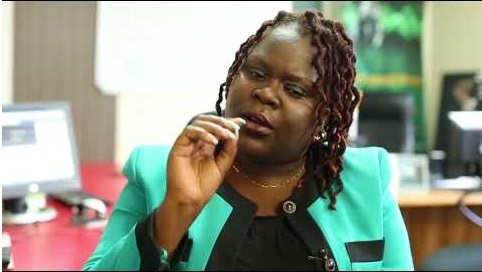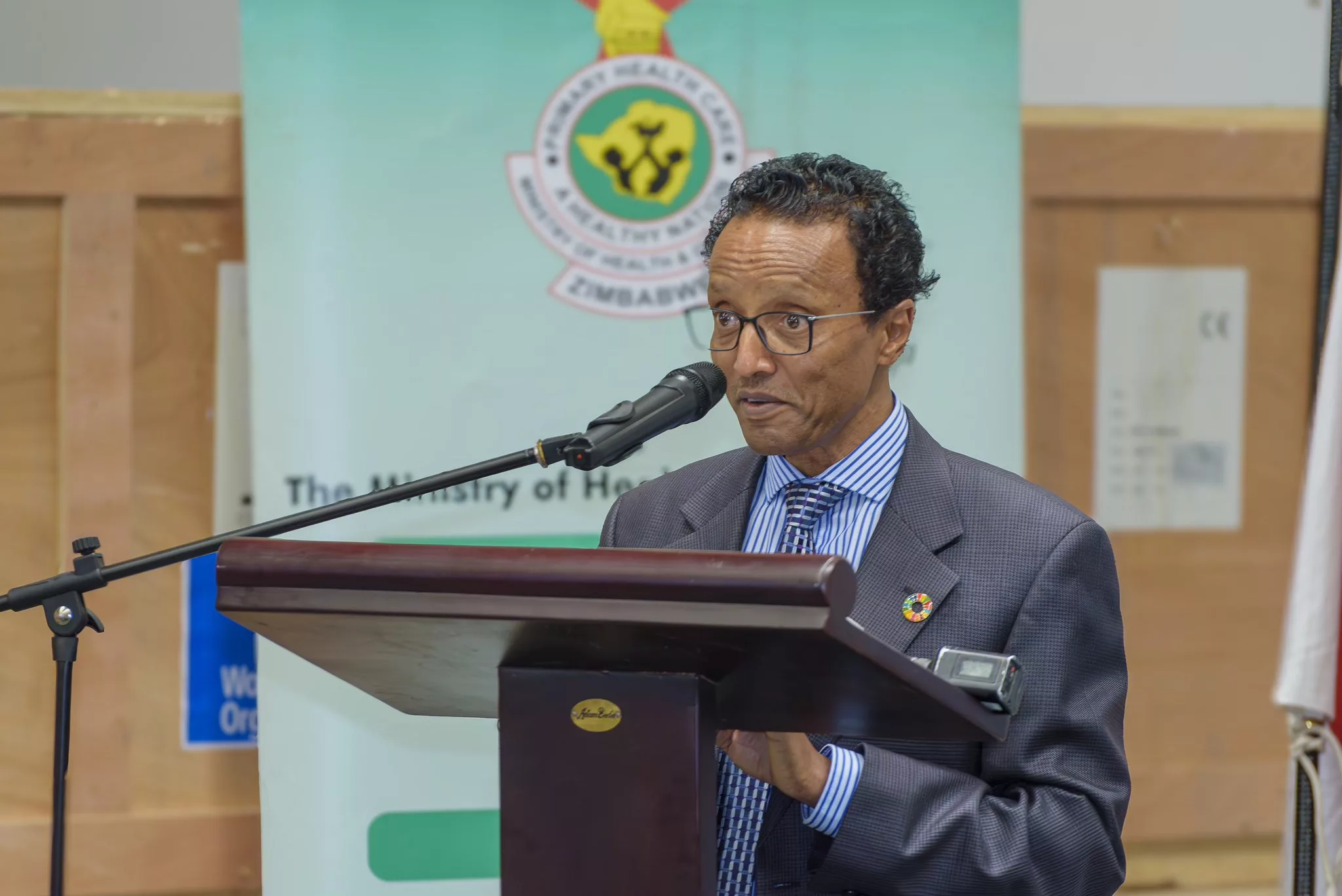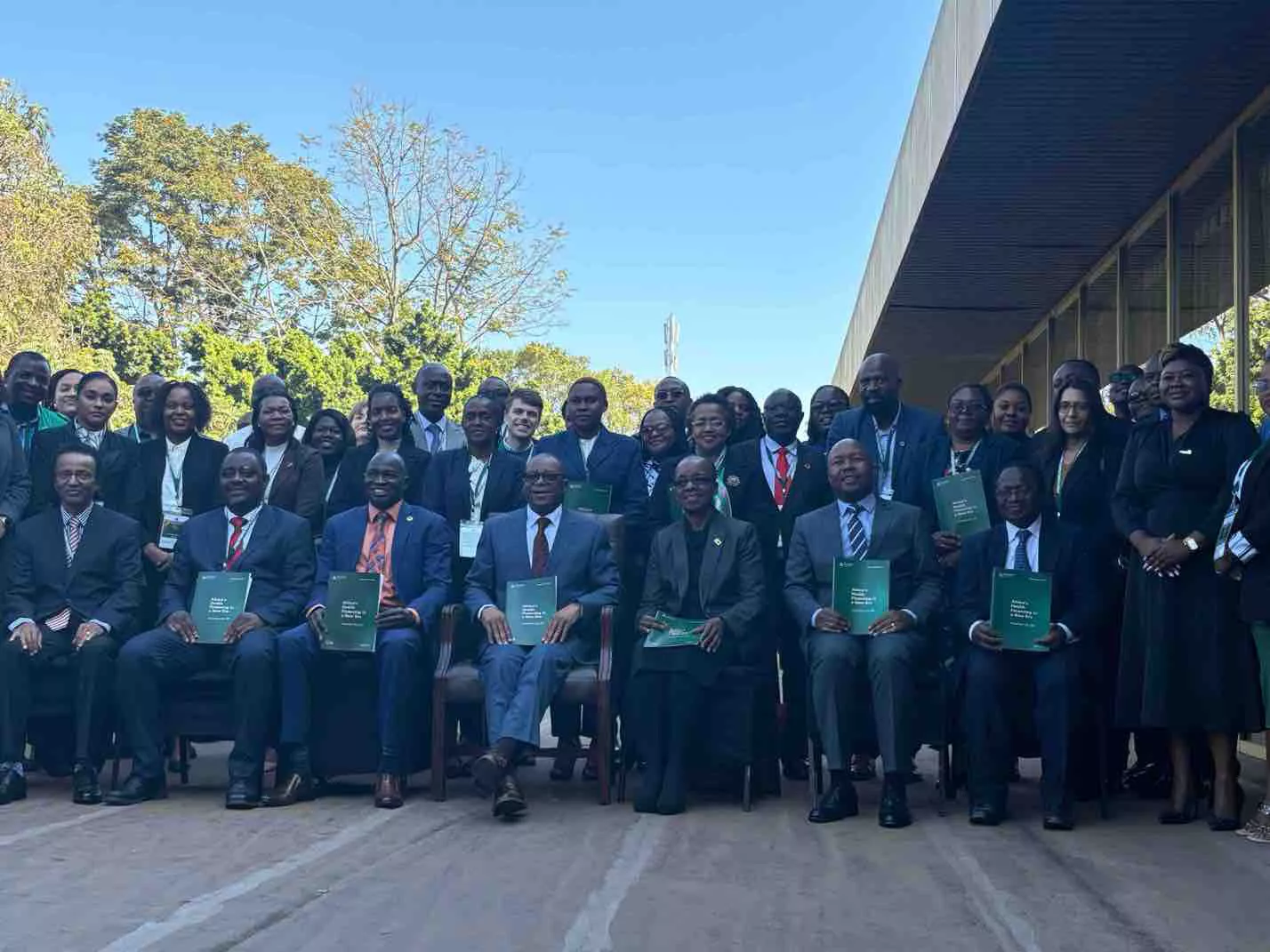|
Getting your Trinity Audio player ready...
|
Writes Linda Tsungirirai Masarira (LEAD President)
As a political party that was involved in the Zimbabwean 2023 elections, LEAD proposes that since the elections stand disputed the only way forward is an all-inclusive power-sharing arrangement. The LEAD proposed Power-sharing arrangement aims to reduce the risk of continued political polarisation and the possibility of civil conflict by guaranteeing all political parties and civil societies a role in the Zimbabwean government, directly or indirectly, thus lessening the stakes of political contestation. In this way, the proposed power-sharing will reduce the risk that spoilers will resort to violence if they do not succeed in the process of democratic electoral contestation. While power-sharing can reduce the incentive of electoral losers to renege on their commitment to democracy, we argue that this depends on the nature of the relevant groups, as well as on the political institutions that will be chosen.
LEAD believes that elections have three main functions in a democracy. First, they are means of choosing the people’s representatives to a legislature, senate, and local authority or to a single office such as the presidency. Second, elections are not just a means of choosing representatives but also of choosing governments. Indeed, in many established democracies, elections are primarily a contest between competing political parties to see who will control the government. Finally, elections are a means of conferring legitimacy on the political system. When at the end of the electoral process there is no national consensus to the effect that the process has managed to serve its purpose, the logical thing is to enter into a power-sharing arrangement while setting up conditions and institutions for a better electoral showing.
As a nation, we have to understand that there is always the overarching issue of under what circumstances elections can help to build a new democratic order in Zimbabwe, and under what circumstances they can undermine democracy and pave the way for a return to polarisation and political violence. The high expectations, Zimbabweans often put on elections tend to be accompanied by a weakness in the preconditions for their success. As a polarised society, Zimbabwe lacks the political climate, social and economic stability, institutional infrastructure, and political will to mount successful elections. The international community is not helping Zimbabwe, by not being sufficiently cognizant of the dangers in pushing for elections, without paying sufficient attention to the capacity and environment of the country to carry them out.
LEAD, as a party, observed that the 2023 elections in Zimbabwe were conducted in a constrained political atmosphere and generally lacked the requisite independence and transparency as provisioned by our national constitution and international guidelines for the conduct of elections. As a country, during the period 2018 – 2023, we failed to put in place the necessary electoral reforms and instead adopted legislation targeting the country’s vibrant civil society, effectively muzzling productive voices of reason. While the Constitution safeguards fundamental human rights and freedoms there is in place legislation that unduly limits the rights and freedoms of citizens.
LEAD also observed that on Election Day, the voting process ran smoothly at most polling stations; however, in some areas, polling stations opened late. This tactically excluded and disenfranchised a number of citizens who had wanted to cast their ballots. As reported by ZEC, about 2000 000 Zimbabweans failed to cast their votes partly due to the delays encountered on voting day. LEAD also holds that the administration of the electoral process as a whole generally lacked transparency and precision in key areas, as the ZEC did not provide critical information during various stages of the process, which LEAD believes undermines public and stakeholder confidence in its management of electoral processes. Although the voter roll was posted for inspection, public confidence in it remained low because of inaccuracies and errors.
LEAD also noted that only the ruling party managed to submit party lists and candidates for every constituency and ward election, and ran uncontested in around 10% of wards. This was mainly because ZEC did not induct the political parties on what is required and had not provisioned a method of payment that was acceptable to it based on the current banking systems in the country. Also, while incidents of political violence were fewer than in 2018, tensions and polarization increased in the months preceding the elections.
In light of the aforementioned, the LEAD party holds that despite their essential role, elections in Zimbabwe have always been a source of tension, causing a lightning-rod for popular discontent and extremist sentiments. Zimbabwean Elections, the 2023 elections included, often as a hindrance to development as they leave the country highly polarised creating an electioneering atmosphere that lasts until the next election. Instead of focusing on development, citizens, civic organisations, political parties, and even captains of industries focus rather on preparing for the forthcoming election and surviving the political turbulence. Zimbabwean elections have always had the perverse effect of undermining the broader process of democratization. A common mistake that we have always made is to hold elections too soon, before national political issues have progressed beyond the concerns of the previous election, and before more normal politics have had time to develop. In our situation, elections have always become a focus for violence, as the major politics continue their conflict via the electoral process. While elections are an essential part of our democracy, ill-timed, badly-designed, or poorly-run elections have often served to undermine democratic processes in fragile political environments.
Given this dilemma, LEAD identifies the following issues facing the Zimbabwean community as it engages in post-2023 election peacebuilding. There are at least five main areas of variation that have a crucial influence on the shape of post-election politics in Zimbabwe:
- First, there is the question of election timing: Should the next national elections be held in 2028 as provisioned by the constitution? Or is it better to wait for a 10-year period so as to allow the political routines and issues or internal politics to come to maturity?
- Second is the matter of political reforms. Is it possible to have political reforms in a heavily polarised political environment? Or is it better to form an all-inclusive government of national unity to preside over the processes of national healing and the realignment of national laws to the constitution?
- Third, there are the mechanics of elections themselves: what laws govern the political environment and the running of elections. Who runs the elections? How are voters enrolled? How are electoral boundaries demarcated? What electoral formula is used? And so on. All of these decisions impact the way national politics develop, particularly the type of party constellations that are formed and the kind of appeals they make to voters and thus to the nature of electoral campaigning.
- Fourth, there is the matter of international election observation, monitoring, and supervision. After placing huge resources on international electoral observation, there is now a renewed focus amongst international actors such as the African Union on the need to professionalize the process of electoral observation and to place more emphasis on building domestic capacity in this area.
- Fifth, there is the often underestimated issue of the effect of elections on the development of civil society and political parties. In Zimbabwean situations, many civil society organisations are weak or non-existent. In such cases, political parties are the key link between the masses and elites and play an absolutely crucial role in building a sustainable democratic polity. Hence, the interaction between civil society, political parties, and the electoral process is itself crucial. The aim should be to promote the development of broad, programmatic party organizations with real links to the community.
As LEAD we understand that conclusions about the potential for peace via power-sharing, after elections, are mixed. For some, power-sharing does little to overcome the commitment problem characterizing a transition from election dispute, while others argue that such concessions provide signals of parties’ willingness to incur costs. As LEAD we, argue that government parties tend to hold an electoral and military advantage, which heightens incentives for contending political leaders to abandon peaceful engagement. The only way to even the playing field is to onto an election sabbatical based on a nationally agreed power-sharing deal.
It is a glaring truth that, the Zimbabwean economy, once the continent’s bread basket and second in strength after South Africa’s, has been sharply constricting since 1999 as a result of political mudslinging and polarisation. The three-decade-long political turmoil has brought growing economic isolation, economic sanctions, incoherent economic policies, widespread corruption, a total breakdown of social services, and grave human rights abuses. Today, foreign currencies are legal tender in Zimbabwe, with 90 % of transactions being made in US dollars. The economic situation remains desperate. Among other things, it is characterised by:
- an exceedingly high unemployment rate: caused by a shrinking manufacturing sector and the collapse of employment in agriculture;
- Poverty: the majority of the population lives in poverty whilst 49% of the population lives in abject poverty and over a million persons are facing food and nutrition insecurity.
- Untenable public spending: central government expenditure accounts for 30 % of GDP, with a huge deficit of GDP. Public servants’ salaries represent 90 % of the budget.
- Debt distress: High public debt reached 86 % of GDP in March 2018, including a 7.7 billion publicly guaranteed external debt.
- being Africa’s largest shadow economy: more than 75 % of Zimbabwe’s economy is informal, which has a negative impact on state revenue;
- Liquidity crisis: The cash-to-deposit ratio dropped from 35 % in 2003 to 5 % in 2017.
It is a fact that the Zimbabwean political environment is charactersied by political and electoral violence. Political actors in Zimbabwe resort to coercion as an instrument to advance their interests or achieve specific political ends through such actions as violence against people, property, or the electoral process before, during, or after elections.
We know that Elections in themselves do not generate violence, however, in the case of Zimbabwe, one can allude to the fragility of the state and societies coupled with the deep-seated political rivalries, and poor economic conditions that reduce electoral processes to avenues for settling differences. Dissatisfied political leaders and/or their supporters often resort to violent protests, destruction of properties, and injuring and at times killing perceived political opponents as a means of expressing their dissatisfaction with the outcomes of electoral processes. Interestingly, in Zimbabwe, the outcomes of elections are often considered to have been rigged or manipulated in favour of a political party or candidate, usually the incumbent party. Several factors have been advanced as possible triggers of electoral violence, in general, and post-election violence, in particular. These include structural weakness in election management; the nature of the electoral system (that is, the winner-takes-all); abuse of incumbency (access to state resources, manipulation of electoral rules); identity politics; security forces‟ intimidations and brutalities during elections; and deficiencies in election observation, monitoring, and reporting.
The introduction of power-sharing has the potential to prevent the escalation of party-based conflicts. The signing of the power-sharing agreement and its subsequent approval by the country’s legislature and implementation have contributed to reducing the violence that may engulf the country after the elections.
The question however is, what needs to be done to sustain the peace? We believe that power-sharing has conflict-mitigating effects especially when parties to the disputes arrive at such an agreement through a process of negotiation and reciprocity that all parties perceive as fair and just given their own changing interest and needs. Power-sharing governments as a post-election conflict management mechanism will serve as a viable alternative to violence following electoral disputes. For instance, a Coalition Government’s primary duty may be to address the cause of the recurrent election violence in Zimbabwe through the implementation of a coherent and far-reaching reform agenda with the view of promoting lasting peace in the country. The subsequent Parliament has also had to pass a number of legislations to further the cause for peace in the country.
The adoption of power-sharing may also lead to a reduction in protests by the opposition parties and their supporters. It may also minimize perceived and real government repression and the flagrant abuse of human rights by state security apparatuses. Power-sharing will thus present Zimbabweans with a rare chance to salvage the hitherto seemingly implacable socio-economic and political conflicts.
It also presents true national cooperation following the abrasive relationship that exists between Zanu PF and the opposition parties. The subsequent government will mark an end to the liberation ethos that has dominated the country’s politics for the better part of the last century. From its inception, Zimbabweans could perhaps hope for an end to the political tensions that have engulfed the country for decades.
There is also the urgent need to fix the dilapidated social infrastructures, and hyperinflation, as well as to lift the international sanctions imposed on the country if the ordinary citizens are to benefit from the peace dividend. ZANU-PF and its apparatus should not continue to have a firm grip on power, and, the acceptance of the power-sharing deal should not only be a ploy to get out of the economic crises, and removal of international sanctions. The proposed power-sharing should be focused on including those groups most capable of destabilizing the political and social order through conflict, in the heart of government. The political power-sharing arrangement has to provide important security guarantees for state and opposition parties, by offering them a place in government.






